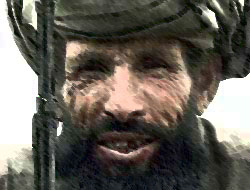 by James L. Schoff, Charles M. Perry, and Jacquelyn K. Davis (Author)
by James L. Schoff, Charles M. Perry, and Jacquelyn K. Davis (Author)From the publisher:
North Korea tested its first nuclear weapon in October 2006, after more than three years of sporadic multilateral diplomacy and negotiations aimed at forestalling its emergence as a new nuclear state in Northeast Asia.
Convincing North Korea it would be better off without such weapons and related programs is fraught with challenges, but the situation has mobilized North Koreas neighbors and the United States to begin to create a regional security and economic framework that can reconcile their conflicting priorities and threat perceptions.
A nuclear North Korea is now a catalyst in Northeast Asia, but it is not yet clear whether it will spark a regional arms race that could pit the United States and Japan against the East Asian mainland or instead foster new trends of security cooperation and institution building. With North Koreas test the nuclear endgame has begun, but the region is ill prepared to manage this dilemma.
For three years the Institute for Foreign Policy Analysis has been studying appropriate ways to build regional capacity for such activities as monitoring nuclear dismantlement, developing mutual confidence-building measures, and coordinating economic engagement with North Korea. Based on more than a hundred interviews, comparative research in other regions, and three multilateral workshops involving leading scholars and policy makers from East Asia and the United States, the authors present a practical approach to achieve these goals.
Dr. Jacquelyn K. Davis is the executive vice president of the Institute for Foreign Policy Analysis, Inc. Charles M. Perry, Ph.D.., (Brookline, Massachusetts) is vice president and director of studies at IFPA. He is an expert on U.S. alliance relations. James L. Schoff is an associate director of Asia-Pacific studies at the Institute for Foreign Policy Analysis (IFPA) in Cambridge, Massachusetts.








































